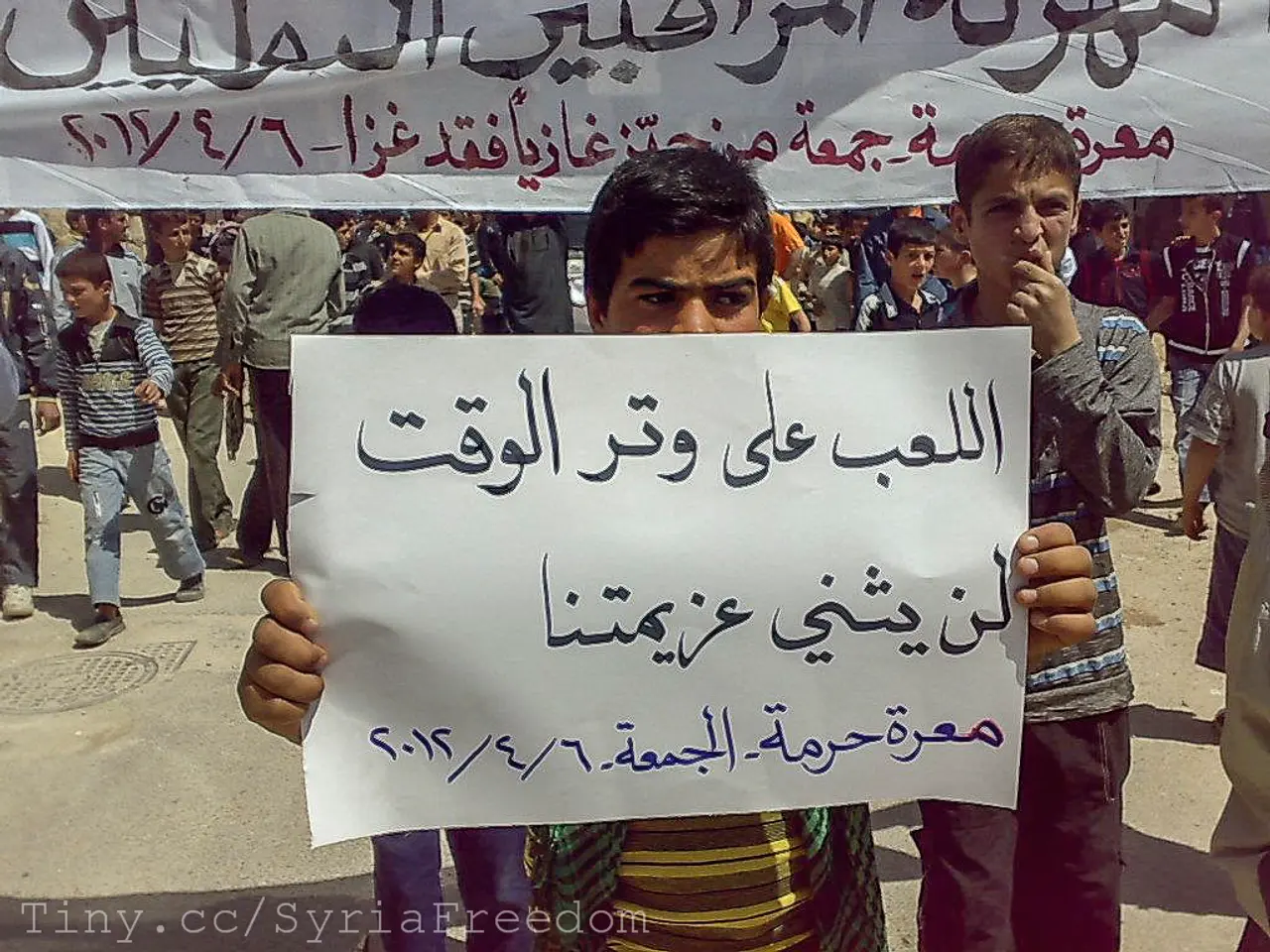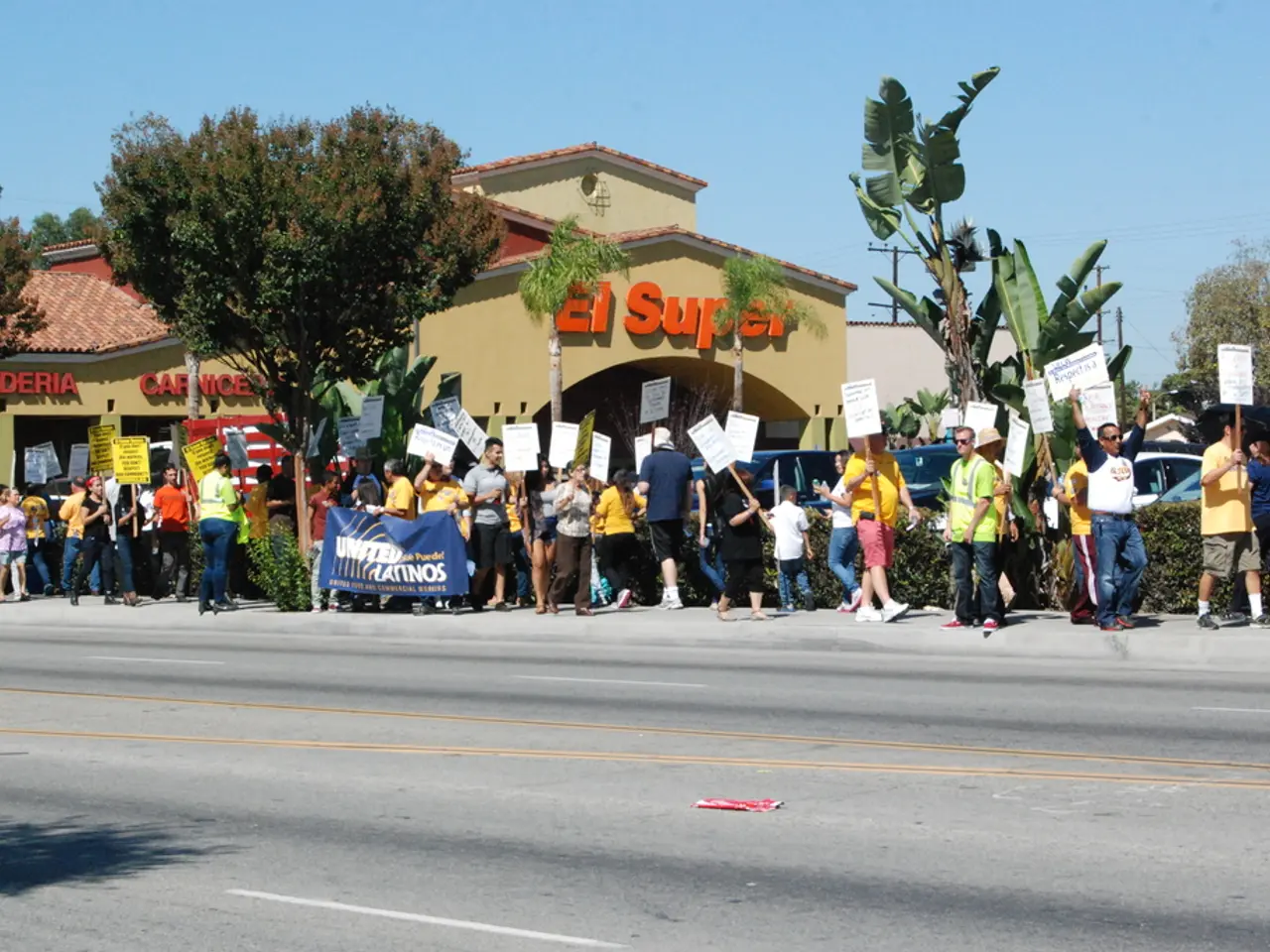Escalating Conflict in Gaza Widens Israel's Internal Rifts
In the heart of the Middle East, Israel is grappling with a deeply polarized political landscape as it navigates its ongoing conflict with Hamas. The nation is divided over how to approach a ceasefire and the release of hostages, with the government led by Prime Minister Benjamin Netanyahu pushing for a military solution, and many calling for negotiations and humanitarian aid.
On Monday, 550 former top diplomats, military officers, and spy chiefs urged President Donald Trump to urge Netanyahu to focus on a hostage deal, arguing that the military stage of the war had already been won. However, the Israeli government's stance remains firm, with an approved plan to take control of Gaza City, including conditions such as the disarmament of Hamas, the return of all hostages, demilitarization of Gaza, Israeli security control, and an alternative civil administration excluding both Hamas and the Palestinian Authority.
Efforts to negotiate a ceasefire have repeatedly stalled, despite mediation by Egypt, Qatar, and the US. The deadlock in diplomacy is evident, as the humanitarian crisis in Gaza worsens, with hostages held in "appalling and inhuman conditions."
This division within Israel has sparked controversy and tension. While the government insists on a hardline military solution, many call for a ceasefire, increased humanitarian aid, and negotiated solutions. International figures like UK Prime Minister Keir Starmer have urged Israel to reconsider escalating the offensive, warning that further military action only exacerbates bloodshed and undermines prospects for peace.
The debate centers on whether to prioritize military defeat of Hamas to secure hostages’ release or to pursue negotiated ceasefires to alleviate civilian suffering and open paths to long-term peace. The International Court of Justice is considering whether to rule on a complaint that Israel has breached the Genocide Convention, adding to the international scrutiny of Israel's actions.
The ongoing conflict has led to a deepening polarization in Israeli society, straining personal relationships and undermining national unity. Biblical archaeologist and kibbutz resident Avi Ofer, who has long campaigned for peace between Israelis and Palestinians, expressed that the current conflict is the most awful period in his life.
On the other hand, Dvir Berko, a 36-year-old IT startup worker, criticized peace activists' call for a ceasefire, arguing that international bodies exaggerate the threat of starvation in Gaza and that Israel should withhold aid until the remaining 49 hostages are freed.
As Israel continues to grapple with this complex and divisive situation, it faces both internal and international pressure to find a resolution that ensures the safety and well-being of its citizens, while also addressing the plight of the Palestinian people and working towards lasting peace.
- The United States has been involved in the war-and-conflicts between Israel and Gaza, with President Donald Trump being urged by 550 former diplomats, military officers, and spy chiefs to press Prime Minister Benjamin Netanyahu for a hostage deal.
- Despite mediation efforts by Egypt, Qatar, and the US, efforts to negotiate a ceasefire have repeatedly stalled, leading to a worsening humanitarian crisis in Gaza, where hostages are reportedly held in "appalling and inhuman conditions."
- The ongoing conflict and political polarization within Israel have sparked international scrutiny, with the International Court of Justice considering whether to rule on a complaint that Israel has breached the Genocide Convention.
- The debate over the Israel-Gaza conflict extends to the general news and politics, with some, like Avi Ofer, calling for long-term peace through negotiated solutions, while others, like Dvir Berko, argue for a hardline military solution to secure hostages' release.




